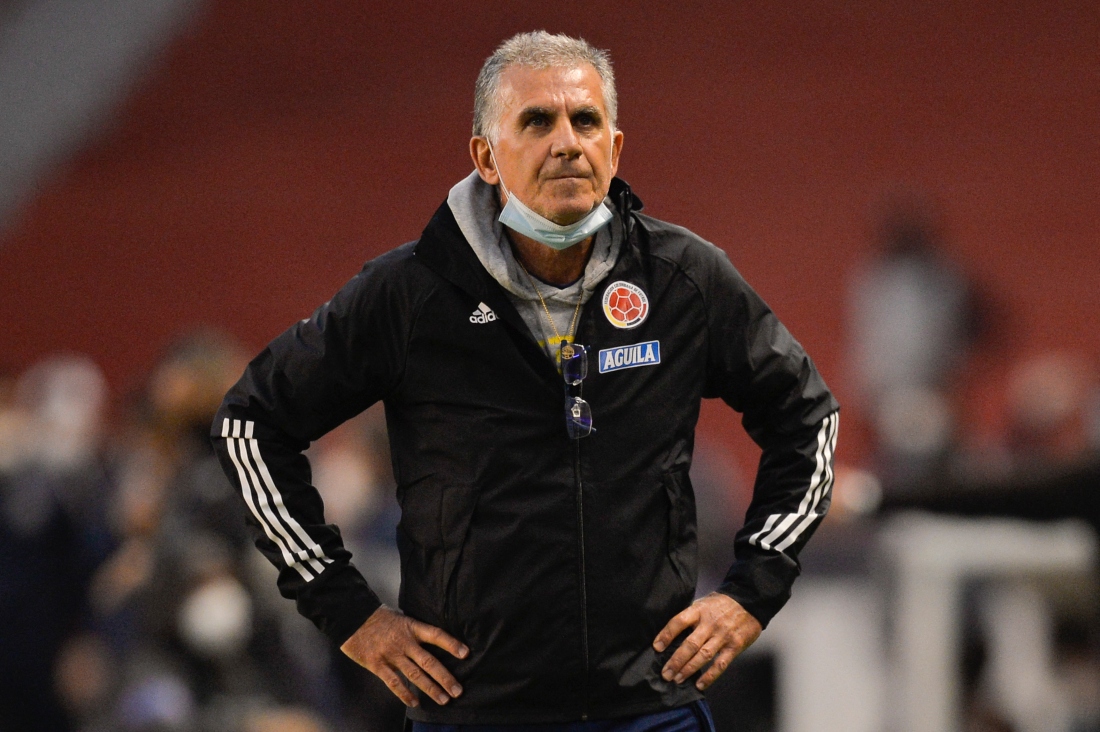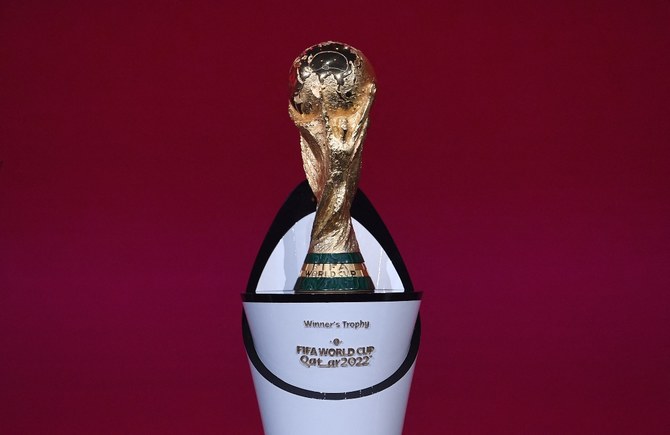https://arab.news/j7yse
- Egypt, Morocco, Tunisia and African champions Algeria move into final round of playoffs for Qatar tournament
While most of the big Arab teams have been struggling in Asia, the traditional powers in Africa have all moved into the final round of playoffs due to take place in March, 2022.
Here are five things we learned from the second stage of qualification in Africa.
1. Carlos Queiroz doing what he does with Egypt

(AFP)
Iran may be on top of their qualification group in Asia and could clinch a spot in Qatar with three games to spare, but their fans are still talking about Carlos Queiroz. The well-traveled tactician was a huge success in Tehran and who would bet against the Mozambique-born boss taking Egypt to the first-ever World Cup in the Middle East?
It is debatable whether Egypt moved too quickly to fire Hossam El-Badry in September after just two games, which brought four points, but it is fairly certain that Queiroz is an upgrade.
Sir Alex Ferguson’s former right-hand man said on his arrival that he is not in Egypt to revolutionize the country’s football scene, but just to win with the Pharaohs. He has made a good start and, in the end, the winning margin was seven points in what had been a tight group. Egypt are better organized, better tactically and more clinical.
After he has more time with his players at the African Cup of Nations in January, Egypt should be a force to be reckoned with, and with Queiroz’s know-how and acumen driving them on, they will be eyeing greater goals than merely reaching the World Cup.
2. Morocco looking very good but need to solve Ziyech row
(AFP)
However well former coach Herve Renard is doing in Saudi Arabia, Moroccan fans may not be missing the urbane Frenchman as their team are unique in the world in having a perfect qualification record so far, with six wins out of six, 20 scored and just one conceded.
What has made it even more impressive is that coach Vahid Halilhodzic, a very different personality than his predecessor, stopped calling up Hakim Ziyech of Chelsea and Noussair Mazraoui of Ajax due to what he called disciplinary reasons. Few teams outside the elite would be able to leave out such players and still be at their best.
Halihodzic, a fiery character who took Algeria to the 2014 World Cup, is not a man to back down, but he should find a way to bring the two stars back.
This week Halilhodzic said that in the AFCON and the World Cup playoffs fans will see the real Morocco. Even without Ziyech, the team are clearly good enough to finish above the likes of Guinea and Sudan, but at some point the Atlas Lions are surely going to need their strongest squad.
3. Algeria should keep their feet on the ground
(AFP)
Everybody knows the danger that Riyad Mahrez poses in attack for Algeria, but it is not all about the Manchester City forward as Islam Slimani is in the form of his international career. The Lyon man finished the second stage as top scorer in the stage itself and in Algeria’s history.
The reigning African champions let in only four goals in the six games, but there were some issues in terms of positioning and concentration against stronger opposition. Look at the final game, a 2-2 draw against Burkina Faso, when just one more goal conceded would have ended dreams of the World Cup.
Burkina Faso also claimed that Algeria had been disrespectful in the first meeting between the two teams. While these accusations have been strenuously denied by coach Djamel Belmadi, it could be that the strong mentality that the team have — helped by the now 33-game unbeaten run — is interpreted as arrogance.
Regardless, this narrow escape should show the mighty Fennecs that while they may see themselves as the best team in Africa, there is still work to do to get to the World Cup.
4. Resolute Tunisia overcome wobble, but need more
(AFP)
The Carthage Eagles started the stage well and cruised to three comfortable wins to take control of the group, seemingly confirming their status as Africa’s second-highest ranked team. But then came a surprise 0-0 draw against Mauritania and a loss to Equatorial Guinea, which meant that Tunisia needed a win against Zambia in the final game. When the pressure was one, the team duly delivered and you have to go back to 2008 to see the last time they lost a home World Cup qualifier.
It was a fine first-half performance with Hungary-based Aissa Laidouni getting the first, England-based Mohamed Drager adding a second and Egypt-based Ali Maaloul sealing the win. There is plenty of international talent, but the team lack the strength in depth of some of their rivals — they will have to step it up in the third round.
5. Javier Clemente taking Libya in the right direction
(AFP)
The former Atletico Madrid, Marseille and Spain boss seems to have a special place in his heart for Libya. At the age of 71, he returned to take charge of the national team for the second time, after his spell of 2013-16.
The Mediterranean Knights, who won the 2014 African Nations Championship (a competition for African-based players), have always had talent, but ranked 27 in the continent, expectations of making the third round were understandably slim.
Under the Spaniard, the team have become a tighter unit and worked hard to give fans a chance to dream. The first two games were both won — against Gabon, thanks to a 95th-minute goal in Benghazi, and then a 1-0 victory in Angola.
At the time, they were in first place, but it was the team’s bad luck to have back-to-back games against an Egyptian team that had just appointed Carlos Queiroz as head coach. With those two games lost, a lone goal from Pierre-Emerick Aubameyang in the penultimate clash meant it was all over. There was enough to suggest that Libya will be competitive for some time to come.

